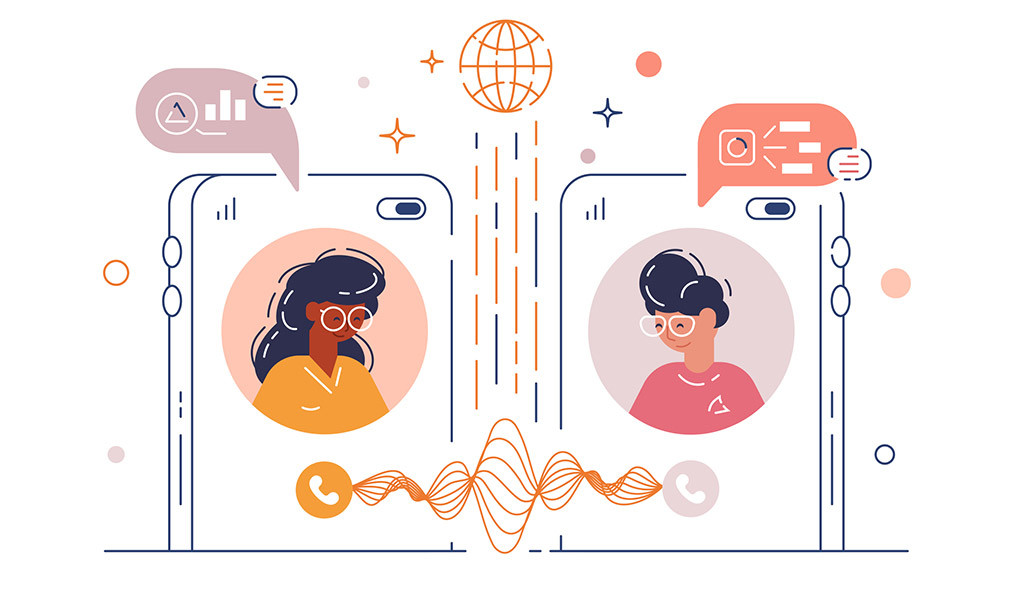
To consistently provide excellent customer service, you need to evolve to meet customer expectations. As we progress through the digital age, customer’s expectations are shifting. It’s no longer good enough to simply provide a phone number for your customers to call. This is now the bare minimum that’s expected of your business.
Customers don’t just want to know they can contact you; they expect to be able to contact you, and they expect to do it on their own terms. So, what are these terms? Well, customers are people and people have a varied set of preferences. To excel at providing an excellent customer experience, you need to accommodate as many of these preferences as possible. The most basic of these preferences is access to messaging platforms. Let’s take a look at why messaging apps are important and how you can deliver them with an omnichannel approach.
Why Messaging Apps are Important and Why You Should Offer Messaging App Customer Service Channels
Messaging apps consistently rank as the most used and downloaded apps across app stores. As SMS becomes less and less relevant, the world is adopting messaging apps in masse. Messaging apps are the new SMS in the same way SMS largely replaced phone calls as a primary form of communication.
There are several reasons for this shift. For example, online messaging is more secure than SMS due to advanced encryption methods. However, your average user probably doesn’t care too much about security over usability. Well, messaging apps are also more usable, so they win on this front too. They have tons of added features like read notifications, location sharing, seamless integration between devices, and allow communication without phone signal.
Your customers are using messaging apps, and you are almost definitely using them in your personal life too. So why wouldn’t your business use them? You think it’s not that important or that your customers can do without this option. The truth is, if you restrict your customer’s options too heavily, they will go to a less restrictive company.
This isn’t just about customers having an undying need to use messaging apps at all times. It represents a larger issue. Companies that provide more options are perceived as being more customer-focused than companies that provide fewer options. Additionally, customers perceive your company as more trustworthy when they see that there’s a range of ways to contact your business. If a customer is on the fence about buying from your company or one of your competitors, your lack of communication options might just sway them to your competitor.
This is because there’s an inherent risk when buying a product from a company for the first time. As a customer, you haven’t dealt with this company before and you have no way of knowing how smooth the process will be. Sometimes companies make errors such as sending a package to the wrong address or being late on a delivery. Customers are aware that this can happen, and they want to feel assured that if it does happen, your company will solve the issue swiftly. If you only provide one communication option, then this doesn’t inspire confidence. What if your phone lines are down? What if you put them on hold? What if you’re too busy to take their call when they’re available to chat? These are all concerns that customers have about companies that only provide a phone number.
Email suffers from a similar problem. When a customer emails your company, they have no way of knowing when you’ll respond. It could be an hour, or it could be 5-10 business days, and this causes anxiety for the customer. Messaging is much more immediate. When you offer a messaging communication option, customers feel confident that any issue they have will be resolved quickly.

How to Deliver Omnichannel Customer Service with Messaging Apps
Choosing The Right Apps
To say messaging apps are popular would be an understatement. In their February blog, WhatsApp announced that there are now more than 2 billion active WhatsApp users. This puts WhatsApp miles ahead of the other messaging apps like Facebook Messenger, WeChat, Apple Business Chat, Telegram, Instagram, Twitter, and Viber, which have a lot of active users themselves. This is one of the reasons that WhatsApp is a great option for communicating with your customers.
While many companies choose to create their own messaging app, this has its drawbacks. Firstly, consumers aren’t eager to download more apps that they will use infrequently. Our phones and the storage they house are prime real estate. Consumers want to download useful apps that improve their quality of life (whether that’s in the form of entertainment, productivity, or something else). Putting time and energy into developing a dedicated customer service messaging app for your customers to download may give off the impression that you expect your customers to need to talk to customer service frequently. This doesn’t inspire confidence. This is why it’s often better to opt for an in-built website Live Chat solution over an app if you don’t want to use one of the main messaging platform providers.
WhatsApp is ideal for many businesses. You don’t have to encourage customers to download a new app, because they probably already have the app on their phone ready to go. You don’t have to train them on how to use the app because they already know how to use it.
With CommBox’s omnichannel platform you can handle customer service and sales through the WhatsApp Business API. CommBox’s solution allows you to handle all communications through one smart inbox, providing a seamless experience for both customers and employees. We’re seeing an increasing number of businesses opt for WhatsApp integration to support them in their customer service and sales operations due to the unique benefits WhatsApp provides. You can send and receive files, determine your customer’s location, validate your customer identity, send invoices, receive payments, and more. Put simply, it’s a highly flexible and intuitive approach to customer communications.
Facebook Messenger is a great option for businesses for similar reasons. Most people use Facebook Messenger in their personal lives and understand how it works. The platform is safe and secure, and the customer can verify their identity with their account.
Identify the Benefits of Using Messaging Apps for Customer Service
All companies are different, and what you want from your messaging platform might be different from what another business wants. You should consider which of the benefits below would apply to your business and whether it’s time to make the jump to an omnichannel platform with messaging integration.
The benefits of messaging apps for customer service in an omnichannel platform:
- Improved efficiency. You can create template messages that reflect your brand. This provides a cohesive experience for customers, saves time, and fosters a better customer experience.
- A unified experience. Omnichannel platforms are all about proving a unified experience for both customers and employees. So much time is lost in the workday due to employees switching between systems and duplicating efforts across systems. This is all eliminated with an omnichannel platform. If you provide a messaging service option without an omnichannel approach, then you’re just adding yet another system for your employees to manage. This is more difficult to manage and maintain and makes the agent’s job harder.
When it comes to customer experience, unification is paramount. Customers should always have the same experience with your company no matter how they contact you. When a company uses several systems, there can be a breakdown in the style of communication or the perception of the brand. There’s no use having an excellent call center operation if you Live Chat frustrates your customers to tears. Customers will see each experience with your different channels as a reflection of your business as a whole.
- Automated notifications. Automation is becoming a prominent part of the business landscape and is set to skyrocket as we move through the digital age. Automated notifications for messaging apps enhance the customer service operation by allowing agents to work faster and more efficiently. Automation can also be built into the messaging apps in the form of automated messages to keywords, or automated messages for when your customer service has closed for the day.
- Flexibility. Customers appreciate flexibility both in their lives and in the businesses they buy from. We all have busy lives so flexible communication is a huge asset in the digital age. Customers can open a chat and come back to it when they have time. This isn’t an option with a phone call where the customer has to stay on the line to resolve the issue or end the call and risk being back at square one.
- Omnichannel platforms are scalable. Your business may experience rapid growth to the point that it quickly outgrows its systems. Omnichannel platforms are designed to be highly scalable, making them suitable for businesses of all sizes. Messaging platforms, particularly popular and well-established platforms like WhatsApp are also highly scalable. This makes the omnichannel approach a perfect fit for messaging apps.

Control Your Data
Data is everything in the digital age. We have data to thank for the explosion in AI, ML, and automated systems that are shaping the world around us. Companies used to routinely delete data, believing it unimportant and wanting to prioritize saving money on storage. Luckily, most businesses no longer do this. However, too few businesses are using their data to unlock the secrets to their success. It’s not good enough to just have data, you need to be analyzing it and looking for patterns.
This task is necessary but made infinitely harder by relying on outdated tech. Your data collection and analysis need to be consistent across all of your channels, otherwise, you can miss something critical. Put simply, you need to see the whole picture for your analysis to be accurate. You need your analysis to be accurate for you to successfully implement solutions that will take your business to the next level.
Omnichannel platforms allow for easy and efficient data collection and analysis because all of your data is in one place. There’s no compiling of data from several systems – a task that is vulnerable to errors and time-consuming.
Messaging apps are also great because they give you access to a trove of customer data. Audio data from calls is much harder to analyze due to technological limitations. It’s hard for a system to capture everything someone is saying when accounting for things like accents, dialects, informal speech, and so on. This is why transcribers still have jobs (for now).
However, with messaging, you have all of your customer data in a clearly readable format. You can search for commonly used terms, create word clouds, identify common issues, and more.